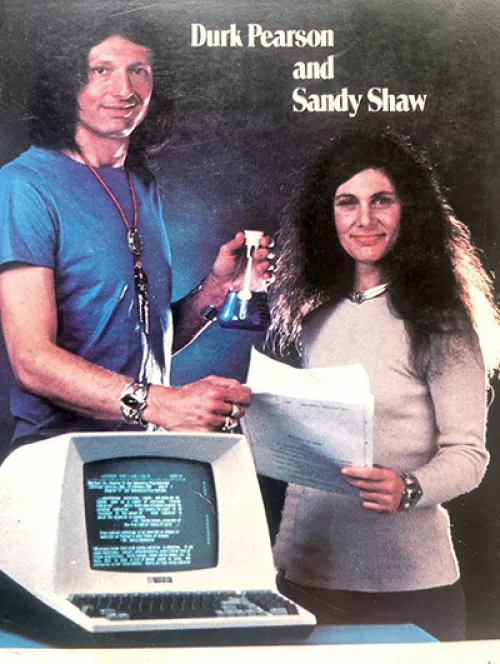Medicine and biomedical research do not exist in a vacuum, nor did they arise out of thin air just yesterday. The modern practice of medicine and today’s advanced biomedical research enterprise have a long history, throughout which they have been shaped by politics, religion, economics, educational institutions, and a myriad of other cultural factors.
That is where the faculty and graduate students in the social science programs at UCSF step in. They strive to widen our vision and help researchers and health professionals recognize the things that have influenced or biased what they do; they remind us that science by its nature is always changing, always challenging the current research zeitgeist. In other words, the social sciences provide the context for all the other programs at the University — from the hard sciences to the clinical ones.

No one at UCSF may appreciate the historic arc of medicine more than Graduate Division Dean Elizabeth Watkins, PhD, also a professor in the History of Health Sciences (HHS) program, and Assistant Professor Aimee Medeiros, PhD, HHS program director. Watkins and Medeiros were recently awarded the J. Worth Estes Prize from the American Association for the History of Medicine for their jointly authored publication, “Live Longer Better: The Historical Roots of Human Growth Hormone as Anti-Aging Medicine.”*
Medeiros’ and Watkins’ wider historical research portfolios show that they share a curiosity about why natural conditions and processes that are not disease-driven, e.g., being smaller than average, going through menopause, or simply getting older, have so often been framed as pathological and needing medical intervention. The Estes Prize-winning paper grew out of research Medeiros did for her first book Heightened Expectations, which looked at how short stature, particularly among boys, has been treated over time – often with human growth hormone (HGH). This line of inquiry dovetailed nicely with research Watkins had conducted earlier on the history of hormone replacement therapy to stave off menopause for her 2007 book The Estrogen Elixer.

The quest for greater longevity and even for immortality is probably as old as humanity, and old age, while not a disease, does eventually prove fatal for everyone. So, it makes sense that not only fringe practitioners, but also conventional doctors, have been involved in this so-far unsuccessful quest. With this paper, Medeiros and Watkins brought to light some colorful characters on both sides of this spectrum in exploring the history of HGH use. Madeiros said the piece was meant to “push the envelope in our understanding of the influential relationship between scientific medicine, cultural health trends, and fringe health activism.”
The application of human growth hormone to achieve long life had to wait for the discovery of the role of HGH in the body in the 1920s. Medeiros and Watkins tell us that wider use of HGH began with the sex hormone replacement therapies starting in the 40s, and its utilization grew — along with various health fads and with the help of popular self-help books — through the 1980s. It has persisted through the use of anti-aging hormone “cocktails,” which have become popular in more recent years.
Medeiros is currently working on her second book, Too Young to Die, which will explore the rise of the children’s hospital in America and examine the origins of race-based healthcare inequalities in pediatric medicine today. She remarked, “Dean Watkins has been my mentor since I started the History of Health Sciences program at UCSF in 2007. This collaborative project was such a learning experience for me. It made me realize how important her work and dedication to mine has informed me as a scholar.” Watch a talk by Medeiros on UCTV.
Watkins is working on her third solo book, tentatively entitled Still on the Pill, which picks up where her previous book, On the Pill: A Social History of Oral Contraceptives, 1950-1970, left off. Listen to a 2018 interview with Watkins on the UCSF student-run science podcast Carry the One Radio.
*Published in the Journal of the History of Medicine and Allied Science, July 2018 (vol 73, number 3).
